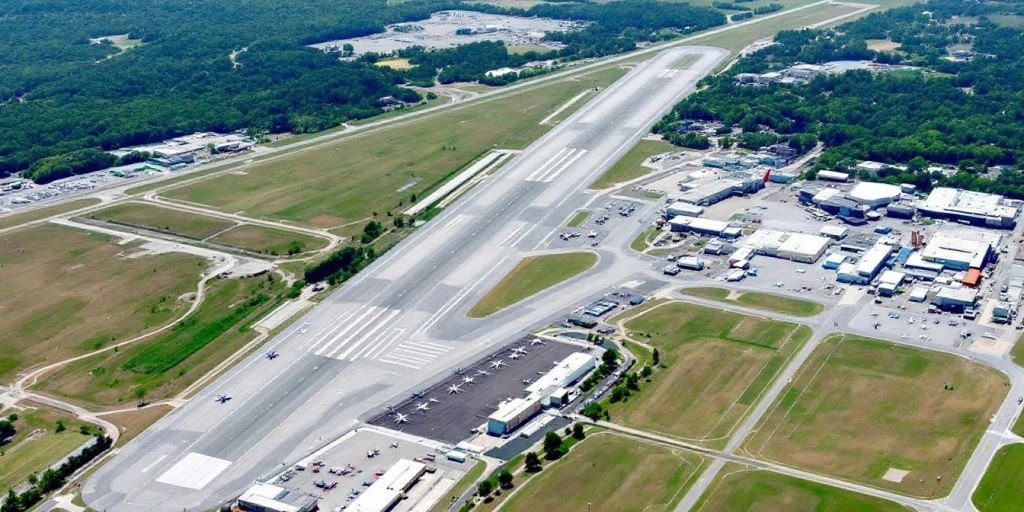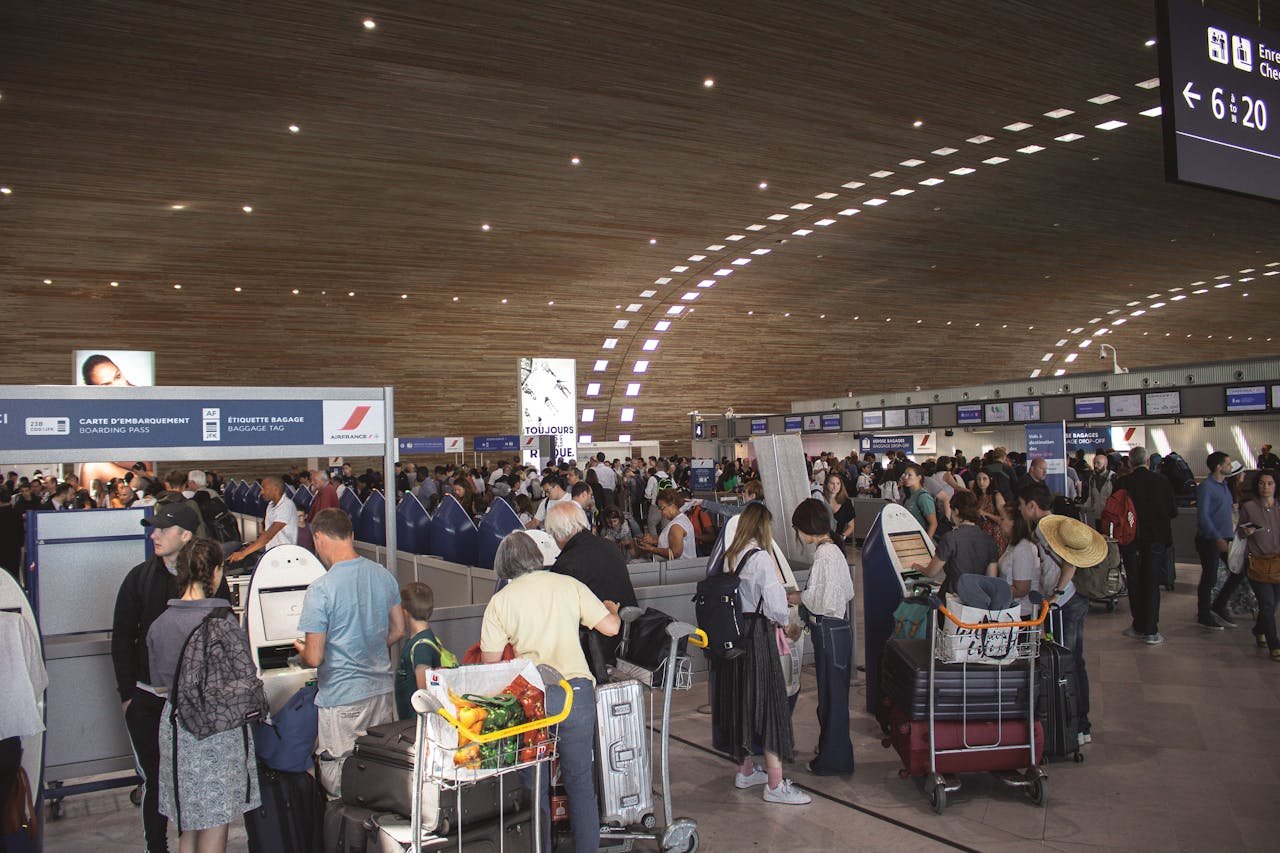Beijing Capital International Airport (IATA: PEK, ICAO: ZBAA) is situated around 26km northeast of downtown Beijing, the capital city of China. It is presently the largest airport in China and the Second busiest airport in the world. By the close of 2019, the yearly capacity of Beijing Capital Airport reached roughly 1.03 billion passengers, with the airport managing 252 domestic and international flight routes daily and over 296 destinations around the world. Serving as the gateway to China’s capital and the foremost aviation hub in the nation, Beijing Airport has positioned itself to remain one of the largest and most advanced airports in the region, particularly with a new terminal constructed in time for the 2008 Olympic Games. The airport serves as the primary hub for Air China, the Chinese flag carrier, and a secondary hub for Hainan Airlines.
Beijing Capital International Airport has increasingly impacted the local economy. In 2017, it contributed to 6.53% of Beijing’s GDP, amounting to RMB 182.835 billion. It also generated a total of 731,500 jobs, which represented 5.86% of the total employment in Beijing.
Table of Contents
Overview of Beijing Capital International Airport
| Airport Name | Beijing Capital International Airport |
| Address | Shunyi, Beijing, China |
| Opened Date | 01 March 1958 |
| Contact | 010-96158 |
| Airport Terminal | 1,2 and 3 |
| IATA Code | PEK |
| ICAO Code | ZBAA |
| Hub for | Air China, Hainan Airlines |
| Official Website | Click here |
| Local site | Click here |
| Click here |
Services & Facilities
- Hotel Information
- Underwater World: Near the T2 corridor gate, there’s a section featuring an underwater landscape. Travelers can enjoy the aquatic view, take photos, and participate in interactive programs. A new interactive projection system displays moving images of aquatic creatures on the floor. With an infrared monitoring system, when passengers step on the projected “water,” the fish appear to be “scared away.” This minor high-tech interactive experience offers great enjoyment to passengers.
- Pay Lounge: This lounge offers hotel-like leisure areas with single rooms, standard rooms, and other amenities.
- Starry Corridor
- Special Passenger Services
- Digital Forest Lounge
- Handicapped-Friendly Facilities
- Free Winter Clothing Safekeeping
- Post Office
- Luggage Portage Service
- Digital Interactive Experience Zone: Located at T3-C04 for young children, and at Boarding Gate C08 for passengers of all ages, this zone offers a variety of facilities.
- Tulip Lounge
- Posing Wall
- Dream Garden
- Children’s Playground
- Color Lounge
- Oasis Lounge
- Royal Garden of Fun & Suzhou Mist and Rain: On each side of the central axis of the International Departure Hall T3-E are two classical Chinese gardens with unique styles. The western garden, “Royal Garden of Fun,” features a royal garden style, while the eastern garden, “Suzhou Mist and Rain,” showcases a Suzhou style. Surrounded by rockeries, water, flowers, trees, and other plants, passengers can enjoy tea and immerse themselves in traditional Oriental culture.
- Luggage Trolleys
- Dressing Rooms
- Mobile Application
- Banks
- Drinking Water
- Lost and Found
- Prayer Rooms
- Free Electric Mobility
- Public Telephones
- Medical & Emergency Services
- Foreign Exchange
- Kid Activity Area
- Smoking Zone
- Temporary ID Card
- Nursing Room
- Shop and Dine
Luggage Limitations
- Carry-on Luggage Limitation
- Domestic Flights: First Class passengers are allowed 2 carry-on items, and Business and Economy Class passengers are allowed 1. Each item should not exceed 20 x 40 x 55 cm and a total weight of 5 kg.
- International Flights: Each item should not exceed 20 x 40 x 55 cm and a total weight of 7 kg. (Some airlines may have different restrictions.)
- Free Check-in Luggage
- Domestic Flights:
- First Class: 40 kg
- Business Class: 30 kg
- Economy Class: 20 kg
- Infants: No allowance
- International Flights:
- Economy Class: 20 kg, 30 kg for Student
- Business Class: 30 kg
- First Class: 40 kg
- Flights to the Americas: Each passenger is allowed 2 pieces of checked luggage, each up to 23 kg, with total dimensions not exceeding 158 cm. Excess luggage incurs additional fees. (Some airlines may have different restrictions.)
- Domestic Flights:
- Overweight Luggage Fee
- For domestic flights, the fee is 15% of the Economy Class ticket price per kilogram, measured in RMB Yuan. (Some airlines may have different rules.)
Security Instructions
Prohibited for Carry-on and Consignment:
- Lighters, Matches
- Guns
- Controlled Knives
- Dangerous Goods
- High Radiation Items
Carry-on Only:
- Non-controlled Tools
- Liquids
- Excessive Luggage
Security Checks:
- Prepare boarding pass, ticket, and ID card
- Place metal items in carry-on luggage
- Laptops and cameras must be checked separately
- Heavy coats must be removed for inspection
Customs and Immigration
Customs Channels:
- Channel of Declaration: For passengers with items that need to be declared.
- Channel of Non-declaration: For passengers without items that need to be declared as green channel.
Inspection Procedures:
- Passengers must present valid passports or other emigration/immigration certificates at the Exit and Entry Frontier Inspection Station. Outgoing passengers must show their boarding pass for approval.
Foreign Passengers:
- Foreign passengers must fill out Foreigner Exit and Entry Frontier Registration Cards. Group visa holders do not need to fill out this card.
Gun/Ammunition Regulations:
- Passengers with guns or ammunition must obtain prior approval and report accurately at the Inspection Station.
Chinese Citizens
- Mainland Residents: Must hold a valid passport and a visa (except for visa-free countries). For travel to/from Hong Kong, Macau, or Taiwan, specific permits and visas are required.
- Hong Kong and Macau Residents: Must have a Home Returning Certificate or Mainland Travel Permit.
- Taiwan Residents: Must have a valid Mainland Travel Permit and visa or residence permit.
Provisions for Foreign Passengers
- Foreign passengers, except those exempt from visas, must undergo inspection with their Chinese visas. Overstaying passengers or those separating from their tourist group must complete relevant procedures before exiting.
Passengers who lose their passport in China must obtain a new passport from their embassy and complete necessary procedures with local authorities before exiting
Airports Transportation Service
Airport Expressway: The Airport Expressway Line connects with Terminals 2 and 3 directly to downtown Beijing, including stops at Sanyuanqiao and Dongzhimen stations.
Airport Shuttle Bus: Several shuttle bus routes connect the airport to different parts of Beijing, including major hotels, train stations, and residential areas. These buses operate frequently and provide a budget-friendly option for travelers. Bus stops take approximately 20-30 minutes to reach the city center
Railway Station: From the airport, travelers can quickly reach Beijing Railway Station, it’s linked to key railway hubs in Beijing through the Airport Expressway Line and other transportation services.
Besides, Taxis, Car Rental services, Private car services, Inter city Buses services are available here.






